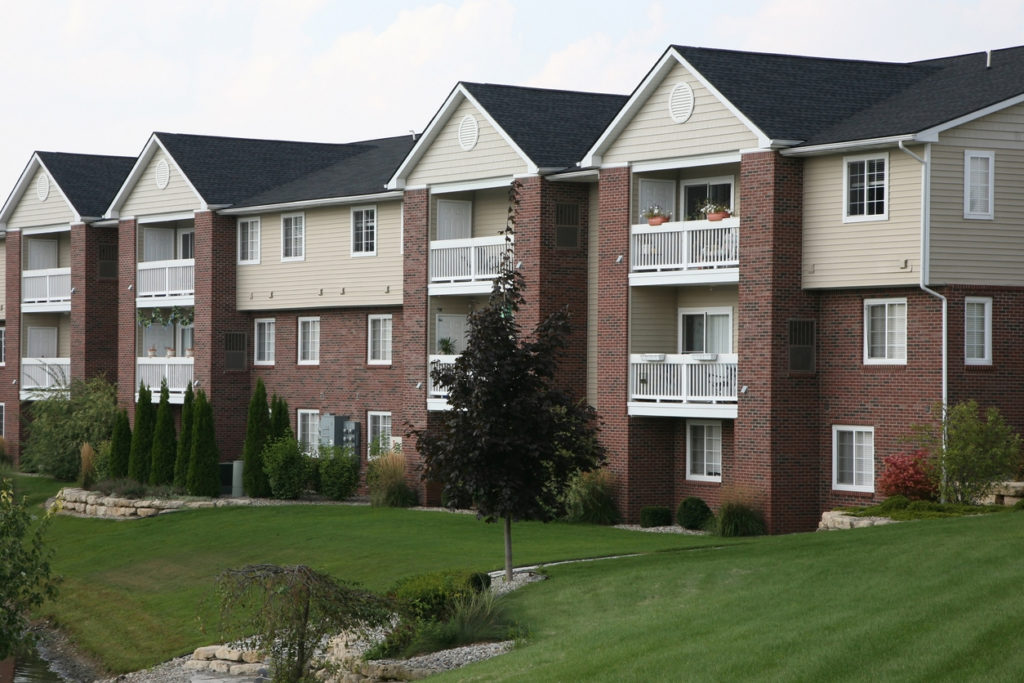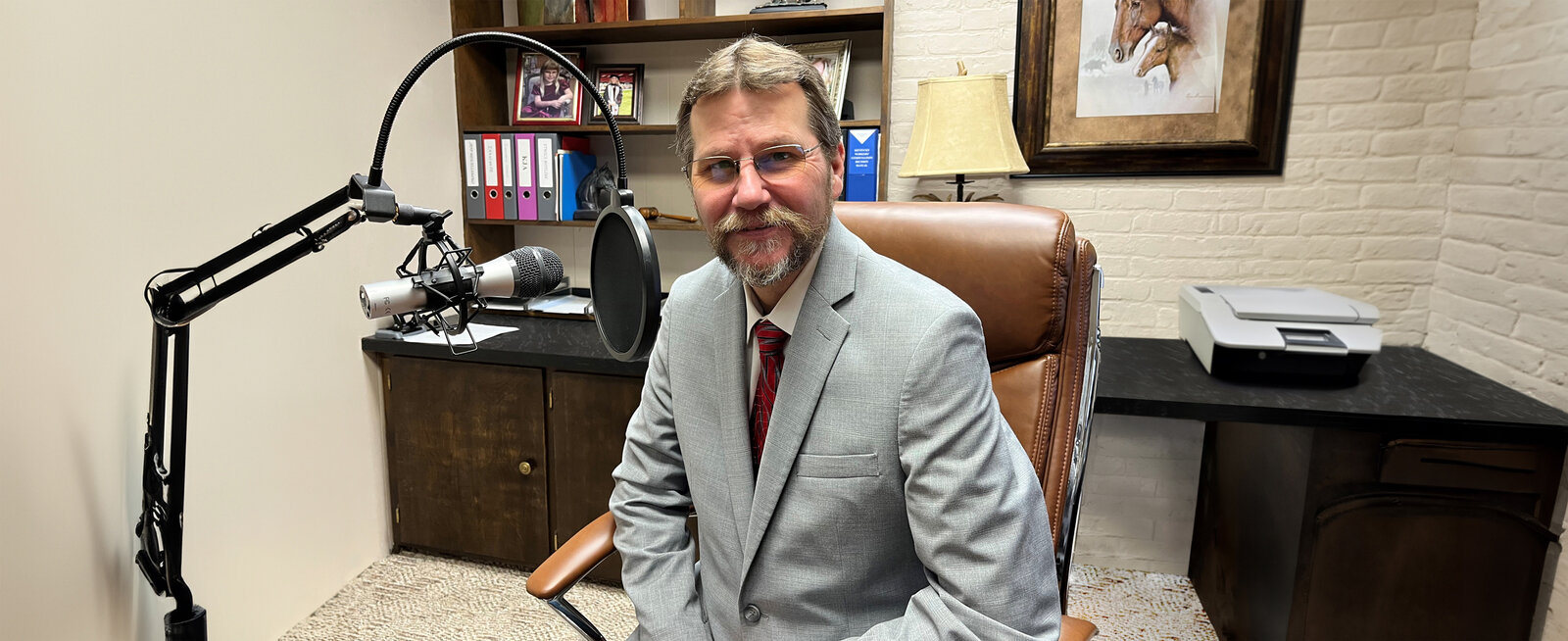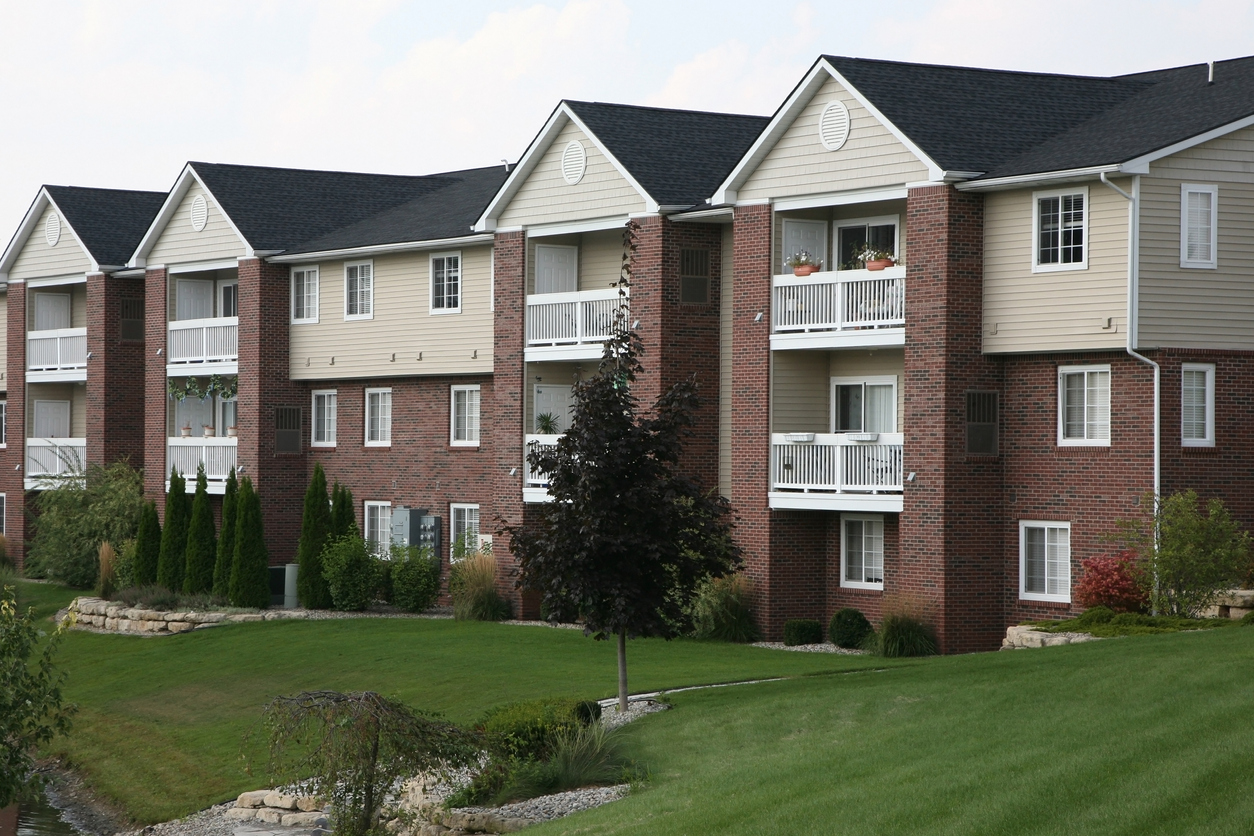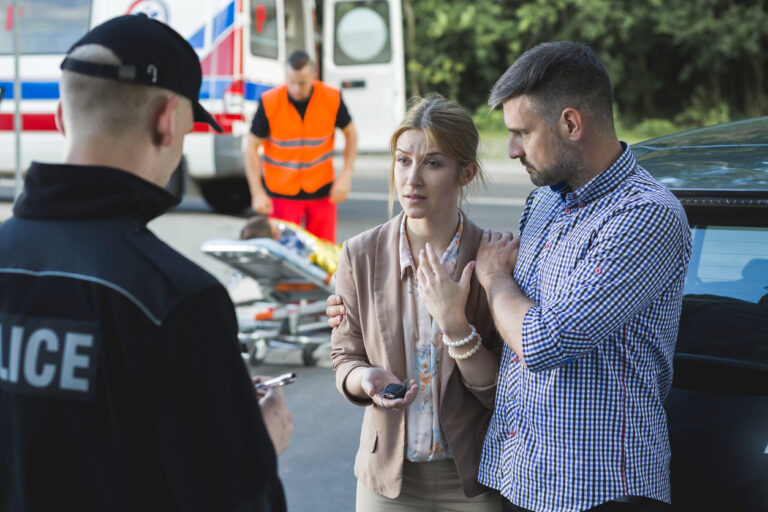Episode 40: Calloway County personal injury attorney Jeff Roberts discusses what you should do if you are injured at an apartment complex. These personal injury situations are typically handled as premises liability claims. Let’s join Jeff to learn more.
As the economy causes more and more people to struggle, combined with increasing interest rates, people are opting to move into or remain in apartments. There can be many advantages to living in a multi-family complex. The apartment owner or the management company handles the grounds and maintenance, while you focus on other areas of your life.

In Episode 27, Jeff discussed premises liability claims arising from injuries at a business, such as a grocery store or big-box retailer. Some of the issues will be similar to today’s discussion for someone who is injured at an apartment complex and other residential dwellings.
For the purposes of this conversation, the term “renter” will also apply to a tenant or someone who is leasing a residential property. Also, the term “landlord” will apply to the owners of the development or the management company overseeing the complex.
The landlord is required to maintain the property and keep it in a reasonably safe condition. This is to protect the renter and other guests who are visiting the property. It’s important to note that when a renter or guest enters the actual living unit, the renter becomes more responsible for an injury occurring inside the residential dwelling.
As a general rule, if the renter creates an unsafe condition resulting in an injury, the responsibility comes back to how the lease/rental agreement is written. For instance, if the renter placed a lamp on a table and a guest tripped over the cord, the renter would be liable, not the landlord.
Injuries in Common Areas
The common areas of an apartment are the responsibility of the landlord. The common area often includes parking lots, stairwells, hallways, the pool area, clubhouse and other amenities.
What if the Railing Gives Way and Causes an Injury?
Many apartment units offer small decks or balconies, often surrounded by railing. What happens if the railing fails? It depends. Both the landlord and the renter could be responsible for the injury. If the landlord has identified the dangerous situation and warned the renter not to use the area until it gets fixed, they have taken steps to protect the renter. If the renter ignores the advice and is later injured (or a guest is injured) when the railing gives way, the renter may be held responsible.
What if Some Slips in a Laundry Facility at the Apartment Complex?
Slippery substances such as laundry detergent or fabric softener can be spilled onto the floor of a laundry facility, by a renter. If that renter, or another person, were to slip and sustain an injury, the landlord might not be liable.
Jeff explains that the landlord typically wouldn’t have the same monitoring requirement as a grocery store, in Jeff’s opinion. The jury will determine what seems reasonable. If the spill happened and someone happened while the person was already on the way to warn the landlord, it’s not reasonable that the landlord had a foreseeable hazard. Now, if the landlord was warned a week prior to the spill and still didn’t take action, there may be some liability.
What about an injury occurring in a dorm complex?
If someone were to get injured in a dorm complex, a state university may be shielded by sovereign immunity. Pursuing a claim against the state is much more complicated. Now, if it’s something they were mandated to repair or maintain, the university might have liability. However, an individual maintenance person might be able to be sued.
Can I Sue the Landlord if an Assault Occurs in a Common Area?
Again, it depends. First, the person committing the assault may be exposed to civil liability and criminal charges. Second, the landlord may have some level of liability if they knew, or should have known, about a dangerous situation.
Jeff discusses how a negative Google review about an apartment complex could be grounds to establish legal exposure for the landlord. The theory is the review made a dangerous situation (i.e. drug dealing) publicly known. If the landlord failed to take reasonable action to rectify the problem and a renter is later injured by the drug dealer, an attorney may be able to establish the fact that the landlord failed to act.
The above situation is similar to a defective step in a stairwell. If the landlord knew about the defect and failed to repair it, they could be held liable for a resulting injury. Similarly, unsafe lighting in a stairwell or parking lot might create a situation in which an injury justifies a premises liability claim.
Inadequate Security Could Result in a Premises Liability Claim
In some multi-family units, the person entering the building is required to buzz-in to gain access. Perhaps there’s a security guard who checks people into the building. If the landlord fails to maintain the buzzer and someone gains unauthorized entry and causes harm, this might create a premises liability claim. The same could apply to a security guard who is negligent in his/her duty to protect the renters from unauthorized visitors.
What Steps Should I Take if I’m Injured at an Apartment Complex?
Jeff recommends you seek medical treatment, first. Get checked out and tell the doctor or nurse how and where you were injured. It’s a good idea to inform the landlord of the situation and injury. You’ll want to find out which insurance company provides coverage for them. You should also consider contacting an attorney to advise you of your options.
The landlord is definitely going to contact its insurance company. The adjuster will immediately begin working to limit the financial exposure. You should speak to an attorney to see what you should also do to protect your interests.
Jeff offers a free consultation to anyone who has been injured at an apartment complex and would like to know if they have a valid claim. He’ll give you his advice, based on the situation, and you can decide whether or not to hire him. The free consultation is provided with no cost and no obligation.
Jeff explains that the premises liability insurance for the apartment complex may have a med-pay provision. This provision pays for a certain amount of medical expenses for someone who is injured on the property, regardless of negligence. It’s worth inquiring to see if this provision is available.
It’s a good idea to document the issue and to take photos, before the hazard can be repaired. The proof will help to substantiate your claim. It’s also important to get the contact information for anyone who mentions having informed the landlord, prior to your injury. This may help to prove the landlord was award of a hazardous situation. If they failed to make the repair, they may be legally negligent.
When you seek medical treatment, even if it’s a few days later, it’s important to advise your doctor or nurse how, when and where you sustained your injury. Having those facts in the medical record can help to improve your attorneys negotiating power with the insurance adjuster. It also gives the medical provider information relevant to how they need to treat your injuries.
Jeff Roberts Represents Injury Clients Throughout Kentucky
With offices located in Calloway County and now Christian County, Jeff actually has a history of representing personal injury clients across the state. He’s represented clients from Paducah, Bowling Green, Louisville, Covington, Whitesville and many other Kentucky locations. He’s not just a Western Kentucky injury attorney.
We hope you found this episode insightful and helpful. Thank you for listening!
Is It Time to Speak with an Attorney about Your Premises Liability Claim?
The office phone number is (270) 753-0053 or toll free at 800-844-5108. For more information, visit www.JeffRobertsLaw.com. This podcast is meant to provide information and is not legal advice. Jeff’s principal office is located at 509 Main Street, Murray, Kentucky. Co-host Jim Ray is a non-attorney spokesperson. This is an advertisement.




